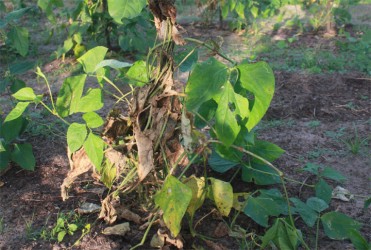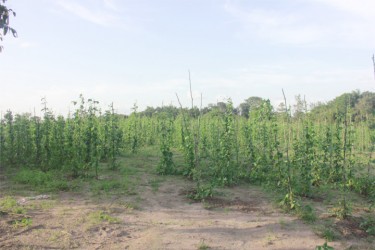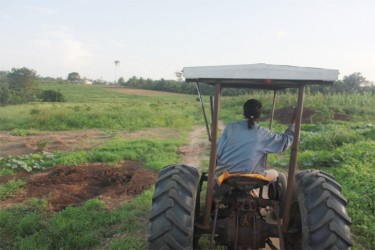“Since early this year, like around February we notice that at three weeks the plant a dry from the bottom, then kill the whole plant. We seh musee something wrong with the seed, so we get two other set and plant them different and same thing. This set here, same thing again,” farmer Totaram (only name given) told Stabroek News.
It is from Moblissa that Linden residents receive about a quarter of their fresh food produce with bora being one of the more popular vegetables.
The farmers explained that they had contacted the Ministry of Agriculture in Georgetown and voiced their concerns but to date they have received no response.

However, when contacted, Minister of Agriculture Dr Leslie Ramsammy told Stabroek News that it appears the report was made to the wrong arm of his ministry and he had no knowledge of the farmers’ plight.
He said concerns of this nature should be addressed to the National Agricultural Research Extension Institute (NAREI).
Further, he informed that since he was now aware he would personally contact that institution’s head and ask that the issue be investigated expeditiously.

The famers, none of whom wanted their names be published, stated that since February they have noticed that at three weeks old their bora plants wither and die and they are now at their wits’ end after trying varying remedies.
They also complained that while the officers from the extension unit of the ministry would sometimes visit them to hear concerns and evaluate how farming was going in their community, no one has visited for the year.

“They normally come, sometimes two, three times for the year but nobody ain’t come yet.
We want them know we get this problem and we need to know a wuh, so if they can come quick because this is a waste a we money and time,” one farmer said.
Other farming produce such as tomatoes, cabbage, okra and eggplants, which are also planted on a large scale, are not affected and the farmers feel that maybe it is an insect attracted to bean species of plants.





